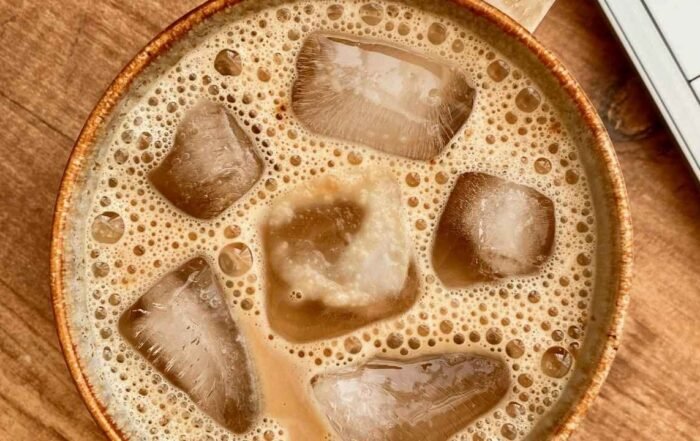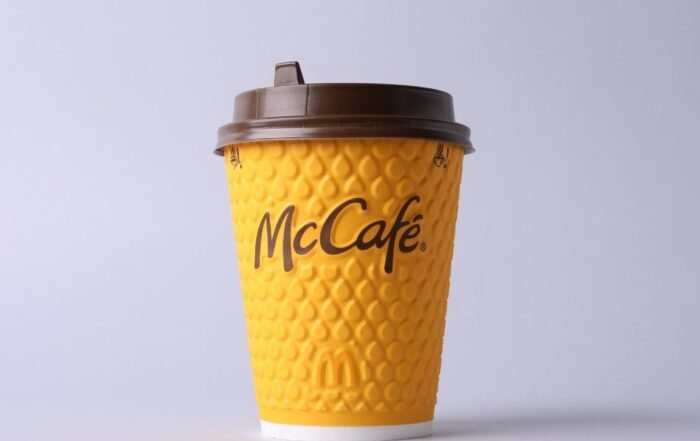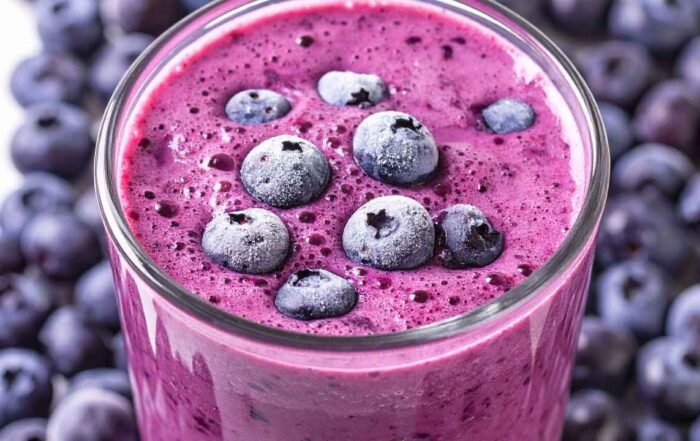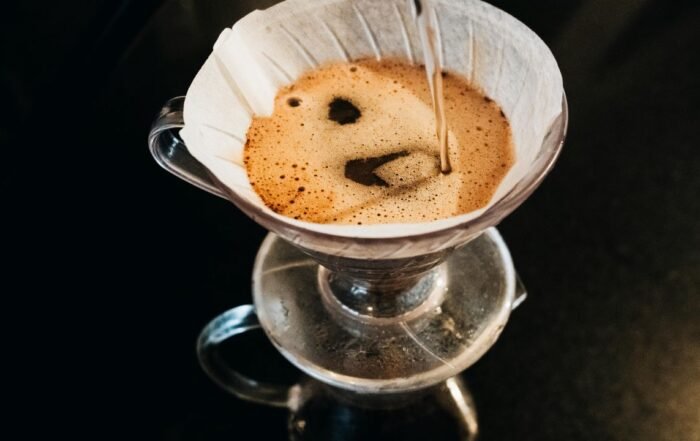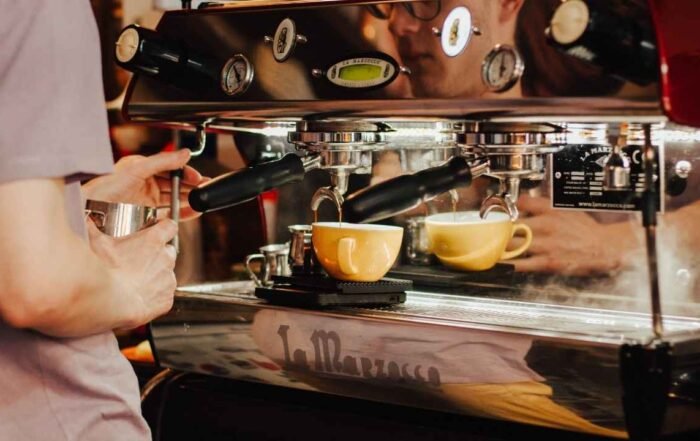In this Article
- Why Caffeine Content Matters?
- Caffeine in Soft Drinks: What You Need to Know
- Caffeine in Energy Drinks: A Closer Look
- Caffeine in Tea-Based Drinks
- Comparing Caffeine Levels Across Popular Beverages
- Final Thoughts: Choosing the Right Beverage for Your Needs
- Leave A Comment Cancel reply
- Related Posts
- Sign up to the newsletter

Why Caffeine Content Matters?
Caffeine is one of the major contents found in coffee and other similar beverages. You must know about caffeine content before having your favorite drink. It helps you to avoid the health issues caused by excessive consumption of caffeine. It is a smart move to keep your health intact while enjoying your favorite drink.
Why You Should Know What You’re Drinking
Different beverages contain vastly different amounts of this stimulant, and what seems like a harmless soda might carry more caffeine than you would. Knowing what’s in your cup can truly help whether you’re trying to lower your caffeine intake or simply want to prevent those afternoon uneasiness.
However caffeine tolerance varies from individual to individual, the average person can take around 400mg of caffeine daily. While some people can consume coffee all day with no problems, others tremble after one cup. How caffeine affects you depends on your age, weight, and sensitivity as well as other variables. This explains why reading labels and understanding your boundaries is more important before grabbing your favorite beverage.
Understanding the Effects of Caffeine on the Body
Caffeine interferes with adenosine receptors in your brain, which usually make you feel exhausted. This sets up that usual buzz of consciousness and energy. However, too much caffeine can cause agitation, quick pulse, and difficulty sleeping. Depending on your metabolism and the quantity consumed, the effects usually begin within 15–45 minutes and may remain 3–5 hours.

Caffeine in Soft Drinks: What You Need to Know
You might think of soft drinks as harmless as a butterfly but they can still carry a decent amount of caffeine. You must know the answers to your questions: How much caffeine in dr pepper? How much caffeine in coke? And is there any caffeine in diet coke? Let’s try to answer these questions.
How Much Caffeine in Coke?
Per 12-ounce can, an ordinary Coca-Cola contains around 34mg of caffeine. Over the decades, this figure has stayed somewhat regular, therefore cola consumers may count on it as a dependable benchmark. To keep batches consistent, the caffeine comes from added caffeine in addition to natural cola nut extract.
Caffeine in Diet Coke Compared to Regular Coke
Diet Coke contains more caffeine than standard Coke which is approximately 46 mg per 12-ounce can. Diet Coke’s different composition and flavoring technique is responsible for this variation. For calorie-conscious customers, the higher caffeine level masks some of the artificial sweetener flavor and offers a somewhat more potent energy boost.
How Much Caffeine in Dr Pepper?
Ever thought about how much caffeine in Dr Pepper? Let me tell you. Dr Pepper is classified as a middle range soft drink. It contains approximately 41mg of caffeine per 12-ounce can. For a spectrum of flavors it carries caffeine from natural sources. But the company also adds an extra amount of caffeine to maintain the taste profile.
Caffeine in Energy Drinks: A Closer Look
Energy drinks are very popular among the younger generation. These drinks may have some thrill but also come with excessive amounts of caffeine. Energy drinks are the top end of caffeine level in the drinks industry. Usually, 50–300 mg of caffeine per serving are found in these beverages, sometimes even more.
The broad range is a result of energy drinks being available in various sizes and forms, from tiny 8-ounce cans to big 24-ounce bottles. Besides caffeine, energy beverages sometimes include additional stimulants like taurine, guarana, and B-vitamins. Guarana is especially interesting as it is a natural caffeine source; beverages made with it could have more total caffeine content than what is stated on the label.

How Much Caffeine in Monster?
The Monster falls in the high-caffeine group, providing about the same quantity as a big mug of coffee. One 16-ounce can of Monster Energy beverages contains roughly 160 mg of caffeine. The company uses a combination of caffeine from various sources, including natural guarana extract, which might offer extra caffeine beyond what’s indicated on the label.
How Much Caffeine in Red Bull?
Although Red Bull may sound less than Monster, Red Bull cans are much smaller. But the caffeine level is rather high as each 8.4-ounce can, Red Bull has 80mg of caffeine. Red Bull really provides more caffeine per ounce than several other larger energy drinks when corrected for serving size. The firm presents itself as one offering focused energy instead of maximal stimulation.
Caffeine in Celsius: Is It Stronger?
Celsius energy drinks are among the stronger choices on the market. 200mg of caffeine per 12-ounce container still makes it strong enough. Marketed as a fitness-oriented energy drink, Celsius’s greater caffeine concentration helps with vigorous exercises and ongoing energy. Celsius is a healthier choice to conventional energy beverages using natural caffeine sources.
Caffeine in Tea-Based Drinks
Tea presents a smoother caffeine experience than coffee or energy drinks. The amount of caffeine in tea relies on a number of variables: the type of tea leaves, brewing time, water temperature, and processing method. Most teas have 15–70mg of caffeine per 8-ounce cup, therefore making them a somewhat good option for those looking for attention without intensity.
Usually holding the most caffeine are black teas, followed by green teas; white and herbal teas have the least. Black tea manufacture utilizes the fermentation technique, which preserves more caffeine; the little processing of green tea yields lower but still detectable quantities. Steeping time counts as well; longer soaking draws more caffeine from the leaves.
How Much Caffeine in Green Tea?
Per 8-ounce cup, green tea has between 25 and 50 mg of caffeine. The particular type and brewing technique determine the exact quantity. While Chinese green teas are often lighter, Japanese green teas like matcha powder have more levels as you are eating the whole leaf. Steeping green tea for three to five minutes gets the best caffeine levels without resulting in too much bitterness.

How Much Caffeine in Black Tea?
With 40–70 mg of caffeine per 8-ounce cup, black tea is the most potent of all conventional beverages. Popular kinds including Earl Grey and English Breakfast fall within this scope. Black tea’s higher caffeine level results from the complete oxidation process it undergoes during manufacture. This fermentation helps to preserve more caffeine compounds than white or green teas.
Comparing Caffeine Levels Across Popular Beverages
Category Caffeine Content (per serving)
- Coffee 80-200mg per 8-ounce cup (varies by brewing method & bean type)
- Energy Drinks 80-300mg+ per serving (varies by size: 8oz to 24oz)
- Espresso ~63mg per shot (often consumed as multiple shots)
- Tea Moderate caffeine content (varies by type)
- Soda 30-50mg per 12-ounce can
- Chocolate-Based Drinks Lowest caffeine content
- Coffee Shop Drinks 200-400mg per 20-ounce serving (varies by brand & preparation)
- Serving Size Note Always check both caffeine content and serving size (e.g., energy drinks range from 8oz to 24oz).
Final Thoughts: Choosing the Right Beverage for Your Needs
Managing caffeine intake depends on knowing your tolerance and aligning it to your drink selections. Beginning with modest amounts like tea or soda if you’re not familiar with caffeine is preferable than starting straight to energy drinks or strong coffee. Watch how varying quantities impact your sleeping patterns, emotional state, and general health.
Keep in mind that genetics, body weight, and daily consumption habits affect everyone differently. For you, what suits your friend might be too much or too little. The aim is not to completely stay away from caffeine but rather to discover a level that improves your day without inducing adverse side effects.
Look for symptoms of excessive caffeine consumption: insomnia, anxiety, digestive problems, or caffeine dependency to operate normally. Should you show any of these symptoms, slowly cut back your consumption rather than suddenly stop to prevent withdrawal migraines. Pregnant women, those with cardiac problems, and those using some drugs should speak with their healthcare providers about suitable caffeine restrictions.




